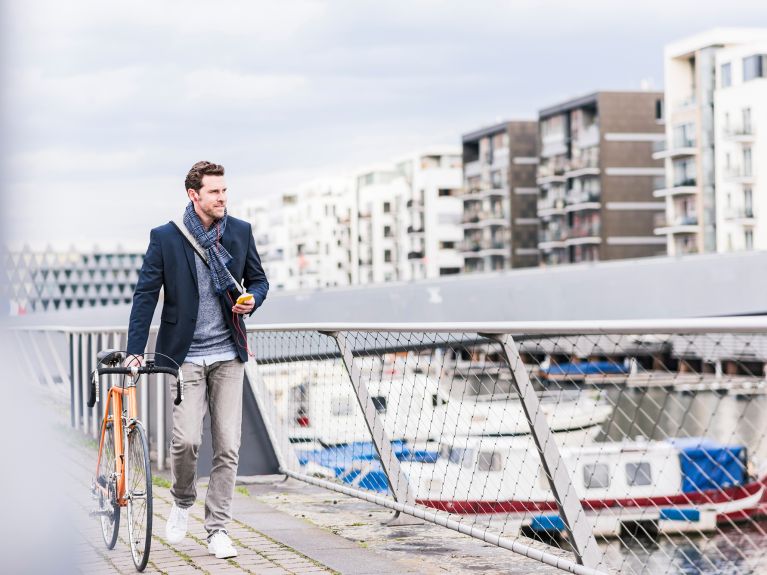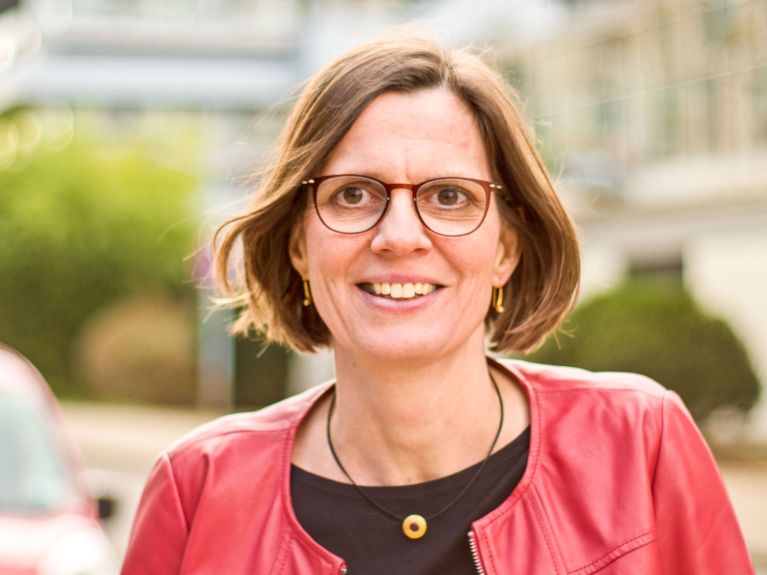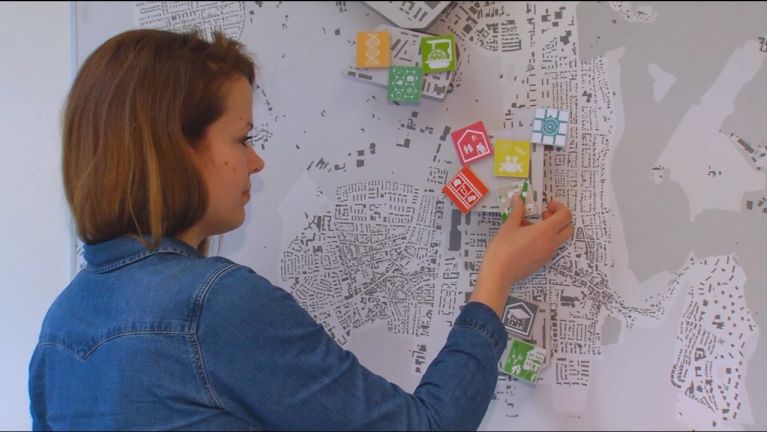What will the city of tomorrow be like?
An expert in urban development explains how growing cities will remain liveable and how lifestyles and mobility will have to change.

Ulrike Gerhard is a professor of urban geography at Heidelberg University and runs the real-world lab Urban Office Heidelberg. Real-time research is conducted here: scientists in four urban development projects are charting the transition from the industrialised society to the knowledge economy and are exploring new lifestyle concepts and forms of civic participation, such as the way the energy transition is designed at the local level.

Professor Gerhard, does everyone want to live in a city? Urban populations are growing. What challenges is this trend posing for Germany’s cities?
Not all cities are growing. Some are even shrinking. This presents urban developers with a variety of challenges. The key question is how we want to design the cities of tomorrow. Issues that need to be addressed are mobility, environmental pollution and the housing market. First and foremost, however, we should discuss what it is we actually want from our cities. Given how heterogeneous urban populations are, it is impossible to suit everyone – instead, a consensus needs to be found.
How can this be achieved?
By getting many different stakeholders together around one table: politicians, planners, investors and – of course – the residents of cities themselves. There are many opportunities for participation, such as town hall meetings and building exhibitions, online voting, apps and crowdsourcing. It is important for urban development to be transparent.
Are economic interests an obstacle to sustainable urban development?
No, not necessarily. What good is a highly-profitable project if it leads to segregation and new inequalities? Economy, ecology and social compatibility are the three golden rules for urban development. Sustainability must be about more than simply paying lip service – when it comes to housing construction, for instance. Local authorities can oblige investors to rent a third of the homes at genuinely affordable rates, and to choose tenants on the basis of social criteria.
How problematic is the housing shortage in German cities?
I feel that the “housing crisis” is exaggerated to some extent. Most people do have a place to live, after all – though not always one that suits them. Demographic changes mean that we need new lifestyle models that reflect the requirements of students, for example, or older people: multi-generational homes, micro-apartments or homes that can be flexibly adapted to the needs of different stages in life.
We must dramatically reduce car traffic in cities.
And what about traffic planning?
Radical rethinking is needed here. We must dramatically reduce car traffic because everyone pays the price of noise and environmental pollution. It should be more expensive to drive a car in the city than to take public transport, which is why I am in favour of free public transport. Other options include reducing the availability of parking spaces and further incentivising bicycle use. Some cities are even considering introducing cable railways.
What findings have you come up with so far in the real-world lab Urban Office?
The sustainable city is a learning city. City planners should have more courage to try out new things, and should stick to their guns when they face resistance or criticism, be it with regard to passive house developments or free local public transport.
Dieses YouTube-Video kann in einem neuen Tab abgespielt werden
YouTube öffnenThird party content
We use YouTube to embed content that may collect data about your activity. Please review the details and accept the service to see this content.
Open consent form
